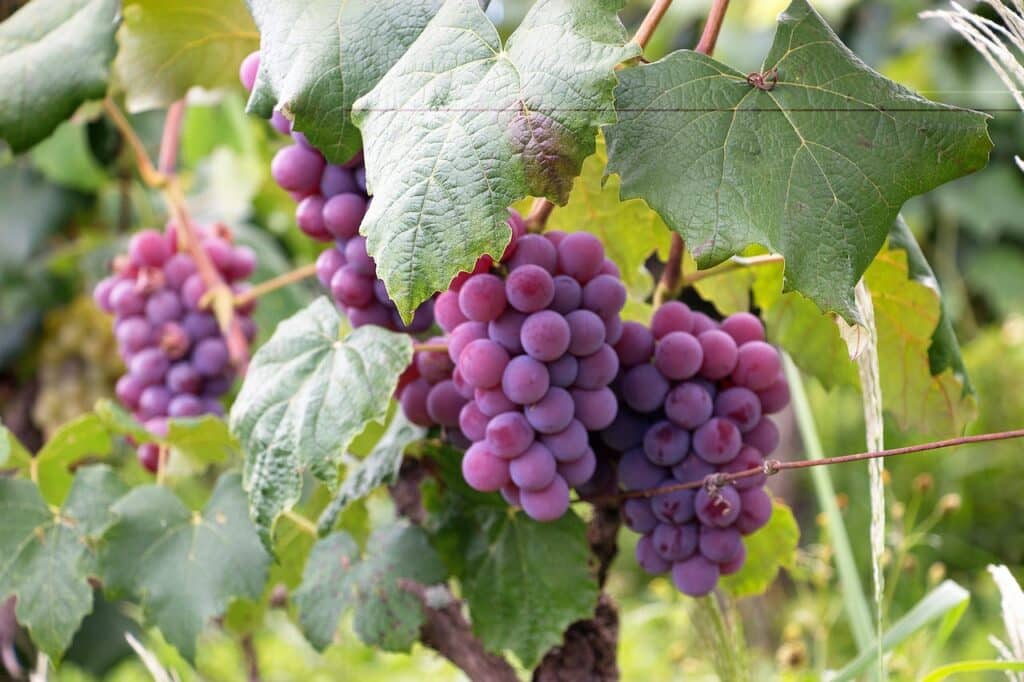At its most fundamental, wine is just fermented grape juice. If a vat of grapes is left in a container for long enough, the naturally occurring yeasts in the fruits will turn the sugars and juices in the grapes into alcohol. This is how winemaking functions at its simplest and most traditional.
Wine ingredients that are not grapes
There’s more than just grapes or grape concentrate in a bottle of wine today. Modern producers add several other ingredients to their wine that enhance the flavours, aromas, and texture of the alcohol. Some of these wine ingredients are: –
Calcium carbonate – may be added before fermentation to reduce the acidity of the wine being produced, especially if the grapes weren’t well-ripened.
Oak – chips, powder, or staves may be added to a barrel of wine to help evenly distribute the subtle notes of wood, spices, and vanilla.
Non-vegan material – like egg whites, bentonite clay, or mammal proteins may be added as fining agents and clarifiers by some artisan winemakers who prefer not to use enzymes. However, these are filtered out before the wine is bottled.
Potassium sorbate and potassium metabisulfite – are used to protect the yeast from spoiling due to bacteria. These are used together during fermentation to facilitate the fermenting process and improve the overall flavour.
Sulphur dioxide – While sulphite-free wines are becoming popular, this is a common additive in wine, used to preserve the grapes and prevent oxidation during winemaking. If present in excess of 10mg per litre, the presence of sulphites has to be declared on the bottle label.
Sugar – is added to help boost the alcohol content of the wine via a process called chaptalization. It also assists fermentation by yeast.
Water – also declared on the label, is added at the beginning of the winemaking process to help temper high alcohol content and add balance to the wine.
Yeast – This is a key ingredient in winemaking, used for converting sugars in the fruit to alcohol. Yeasts that are naturally present in the fruit can initiate the fermentation or living yeasts can be added to artificially induce fermentation. Cultured yeasts can be used to enhance certain flavour profiles. Yeast is also used in malolactic fermentation, where naturally occurring bitter malic acids are converted via a second fermentation into softer lactic acids.
The process of fermentation releases hundreds of aromatic compounds called esters. These can carry a host of flavours like cherry, vanilla, and rose, which get imbued into the wine.
Incidentally, wine doesn’t always have to be made from grapes. Any fruit like apples, plums, and berries can be made into wine as long as they contain sugar that can be fermented into alcohol.
Other common questions people often ask about wine are about its alcohol content or about the effect of wine on human health.
Is wine strong alcohol?
The answer varies. The alcohol content in wine ranges from as low as 5.5% to as much as 23% ABV, depending on the style of wine, its quality, and where the grapes come from. An Italian Moscato or a German Riesling are typical examples of low-alcohol wines, whereas a Madeira or a Marsala or fortified wines like sherry and port rank at the higher end of the spectrum. Wines like Bordeaux, Champagne, Sauvignon Blanc, Chianti, and Pinot Gris appear around the middle of the spectrum with medium-level alcohol in the range of 12-14% ABV.
Is wine good for health?
Wine does have some health benefits but only when consumed in moderation alongside a balanced diet. We’ve earlier reported, based on emerging research, that the optimal daily intake of wine is one glass (150 ml) for women and two glasses (300 ml) for men. Among wines, there is evidence of the positive benefits of red wine. It is linked to resveratrol, a powerful antioxidant, which helps lower the risk of some diseases. To reap the health benefits of wine, be mindful of the calories, eat before you drink, watch what you eat and when you drink, drink in moderation, exercise regularly, and take supplements.
Want to know more? Find out what are the most asked wine questions on our blog here.







